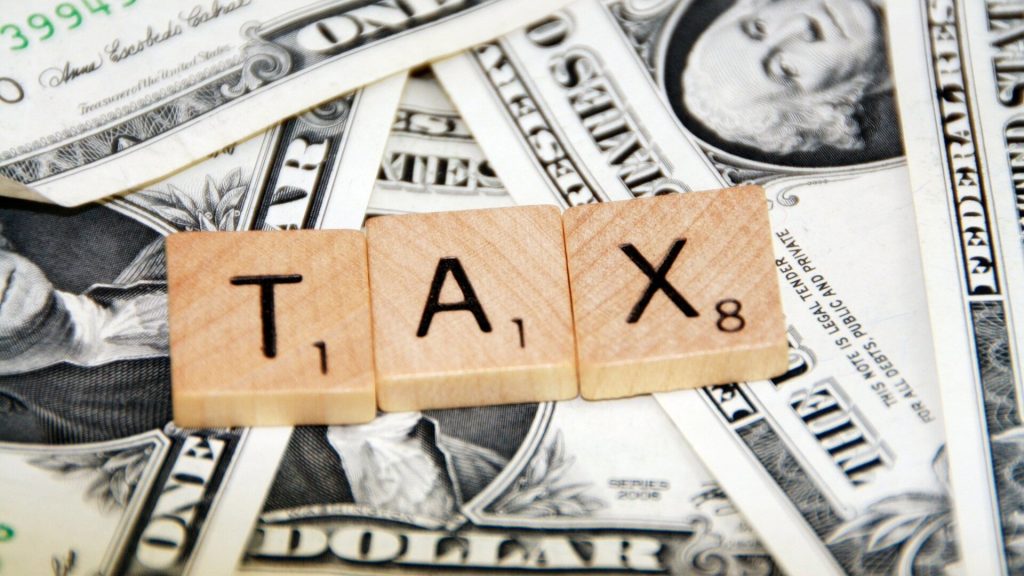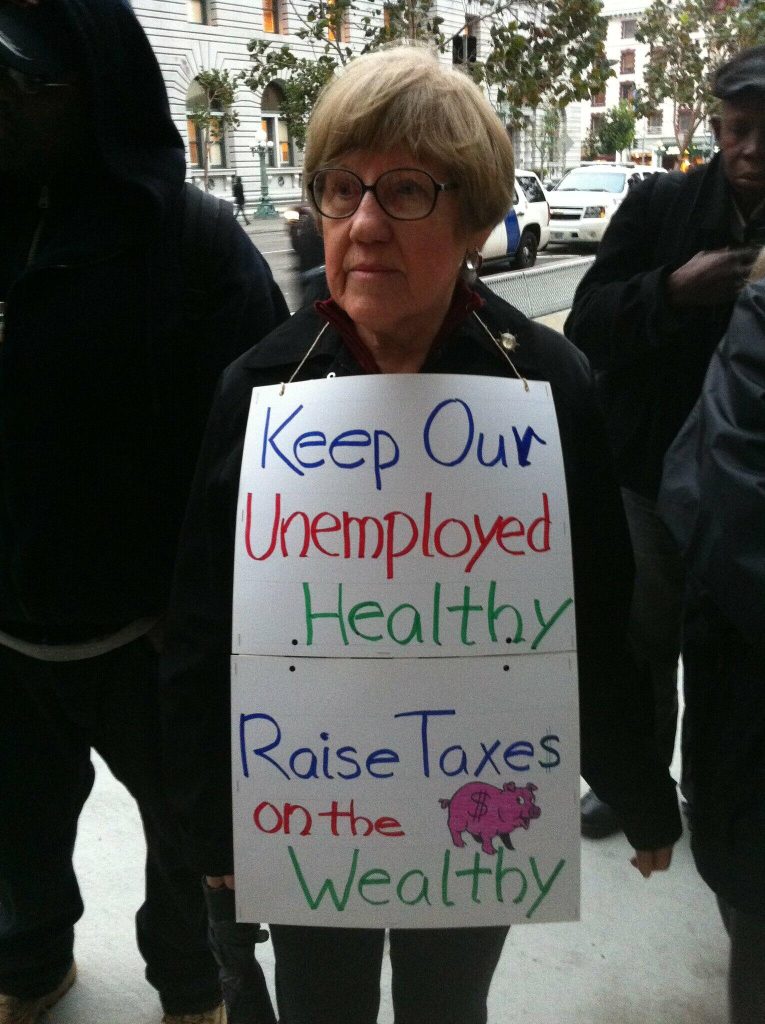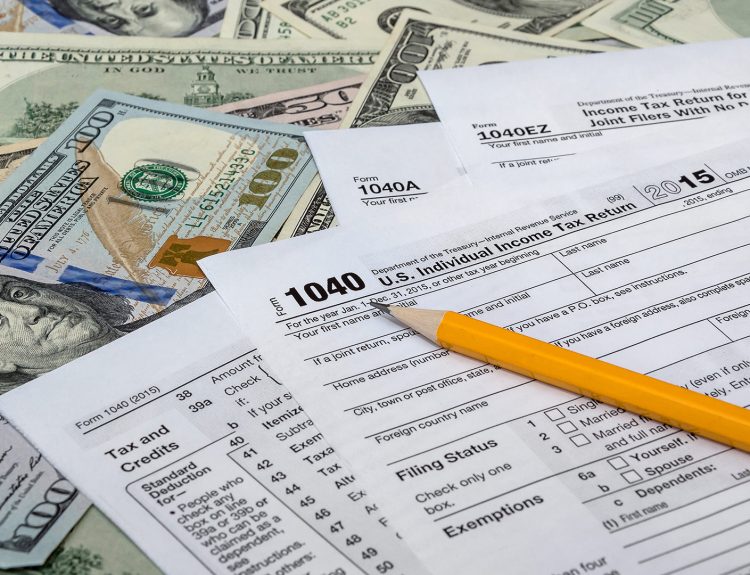A tax on the nation’s wealthy sounds like a good idea. The people with the most wealth should pay their fair share, after all. California certainly believes that a wealth tax could solve many of its problems, and since there are a lot of high-rollers in the state, it may work out. Let’s see how they’re implementing this tax.
Why A Wealth Tax?

Generally speaking, wealth usually comes to individuals when they provide something of worth to a capitalist society. So, people who make things or do things that others are willing to pay for can eventually get rich doing so. The wealth tax is supposed to take a hard look at the amount these people earn.
California has been suffering from a budget gap. In its most recent report, the Legislative Analyst’s Office showed a shortfall in tax revenue for the coming year. The hope is that this tax will slow the current budget gap of $68 billion.
Who This Tax Targets

If you’re wondering if you’re an everyday citizen of California, this tax probably won’t make much of a difference to you. The tax is supposed to charge a 1% tax rate on household net worths of over $50 million and 1.5% on households topping $1 billion in net worth.
The tax applying to $1 billion households will go into effect this year, and the tax on households with $50 million net worth will go into effect in 2026. The net worth calculation doesn’t just factor in properties and businesses in California but worldwide as well.
Not The Only Place Proposing Wealth Taxes

While California is the latest state to propose a wealth tax on its wealthiest citizens, they’re far from the only one. Hawaii recently explored levying a 1% tax on all individuals with a net worth of over $20 million. Washington did the same, with a threshold net worth of $250 million.
Massachusetts actually got a wealth tax passed through a ballot initiative, resulting in a 4% surtax on income over $1 million. This legislation had to be presented several times before it was finally passed through a vote. New York has had a different approach, raising its capital gains taxes and other income taxes.
A Large Proportion of High-Net-Worth Individuals

What makes the California tax such a powerful initiative is the number of people in the state who live high-net-worth lifestyles. At the end of 2021, over three thousand Californians could demonstrate a net worth of over $50 million.
Even in the over one billion category, California has quite a large number. Estimates put California’s billionaires at the end of 2021 at just under 120 individuals. That could work out well in the state’s favor, with each individual paying 1% of their estate to the state in tax.
National Wealth Tax Calls Ramp Up

After Massachusetts passed its surtax law (the Massachusetts Millionaires’ Tax law), the rest of the country realized it could be done. More prominent voices called for a national wealth tax to support the weight of infrastructural maintenance and social program improvement.
The country’s income inequality and wealth gap have never been more pronounced than they are now. Many companies and individuals have offshore accounts set up primarily to avoid or evade taxation. Leaked papers from tax havens show how many millionaires are “hiding” money overseas to avoid paying taxes for it.
Why Has Wealth Tax Been So Slow to Materialize?

One of the reasons economically conservative branches give for no or low wealth tax is that capital that could go into funding new and innovative ventures should not be taxed. The argument is that these funds could develop into more jobs for the population and better returns for the state.
While it is a decent argument if that money was being used for creating and developing the economy, most of it isn’t. In fact, many millionaires and billionaires don’t even invest within the state. That money is sometimes used to buy property in other countries or fund internationally registered businesses.
The Worry of Capital Flight

Another issue that California will have to battle with is whether their millionaires and billionaires will consider moving out of the state to avoid the taxes. They still have that right under the US Constitution since mobility and freedom of movement are enshrined rights of citizens.
California hopes these people who have established social groups and businesses within the state will stay there because of their ties. While most Californians will remain in-state, a few might consider packing up and moving to avoid this massive tax on their net worth.
A Pro Rata Tax Also Applies

The state has planned for those who intend to leave the state to avoid paying taxes as well. Amendments to the law suggest a pro-rata rate for those who don’t live in California throughout the year. Depending on how long they visit, the state will take a portion of their net worth as taxes for the privilege.
The tax also applies to non-residents who have recently left the state. So, those living in California temporarily while having citizenship outside the US will still be required to pay at the pro-rate rate. This is supposed to prevent people from abusing the state by traveling in and out of it to avoid taxation.
Net Worth Calculations Take Many Things Into Consideration

How does California calculate how much a person’s net worth is? Net worth is a complicated calculation since assets fluctuate in price, and some are hidden from public view. California intends to use its resources to calculate net worth based on what it knows about the individual.
Along with income and other visible assets, California’s calculation would include other assets other net worth calculations may avoid. These assets include private equity interests, partnerships, offshore financial assets, and artwork. Assets that aren’t publicly traded will also be evaluated by California’s Franchise Tax Board.
No Real Property is Included in the Tax

In a decision that has puzzled some, the state has excluded real property in its net worth calculations. This opens a loophole that the wealthy can exploit, raising the question of whether it’s really a wealth tax or just an incentive to invest in California’s property.
It’s not too complicated for someone to arrange their finances so that most of their assets are held in real property. This may also have the side-effect of pushing up California’s already soaring housing prices as real property becomes even more valuable as a commodity to hide value inside.
Bounty System In Place

So, how does the state intend to verify that the rich are paying their fair share? Since the tax is supposed to benefit the average Californian, it’s only fitting that they also benefit when the taxes are not being paid. To this end, the legislation has introduced a bounty system to ensure taxes are paid by those who have to pay them.
The system lets those who suspect high earners of not paying taxes report them to the state for non-payment. If the report turns out to be accurate, the state is willing to split the income it gets from the settlement with the reporter.
Tax Rates Across The Board Increase

While the wealth tax will hit individuals, high-earning businesses face the pinch in California. Recent increases in marginal income taxes have seen it rise by an entire percent. The state legislature says this is to help pay for extended family paid leave. Large businesses aren’t the only ones affected either.
Legislation has also made it difficult, if not impossible, for freelancers to land a job while based in California. Thanks to the harsh taxes levied on freelancers, many have fled the state, paving the way for other small businesses to leave for greener pastures.
Making a Problem Worse

Economic conservatives have pointed out (and have been roundly ignored) that California is basing its taxation of high-wealth individuals and companies on shaky ground. People love living in California, but if it gets too expensive to live there, many wouldn’t have a problem leaving.
Capital flight could lead to mass closure of businesses and lower income from whatever businesses remain open. Once the departure starts, it would be nearly impossible for the state to do anything to stop it short of rolling back some of its legislation.
The Bottom Line Isn’t Drawn Yet

The tax is likely to hit a few people very hard, provided they remain as residents of the state. However, if they leave and take their businesses with them, the same people the tax was supposed to help (the average Californian) would probably be out of a job.
Predicting how things will go regarding an economic situation is extremely difficult. There are too many external factors at play to say with any certainty what the final condition of the economy will be. Yet, if more states adopt a wealth tax, fewer wealthy citizens might be willing to invest in those states.
A Tax and Spend System is Unsustainable

This particular tax is supposed to offset an increase in spending, with the wealthiest individuals forced to pay for the state’s largesse. It’s presented under the guise of helping the average Californian, but whether it actually does so remains to be seen.
What is certain is that taxing to pay for increased state spending is unsustainable. As California continues tightening its grip on its business owners and wealthy individuals, one has to wonder if they’re just pushing to see how long the final domino takes to fall.






